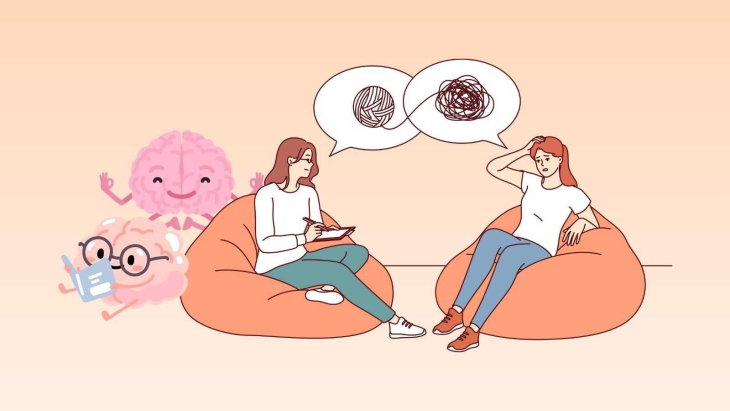Recent Posts
Most Popular
Do mental health therapists have the ability to read minds? Uncovering therapists' people skills

Mental health therapists help people with a wide range of mental health concerns and they make such a positive impact on the lives of their clients through performing thorough assessments, planning and implementing treatments tailored to the needs of a client, counseling, and many more.
Therapists are advocates, collaborators, and relationship-builders. They wear many hats!
Mental health therapists have various educational backgrounds and specializations that make them fit to work with clients with mental health concerns.
They may have majored in these areas or have related careers in:
- Counseling/ Patient counseling,
- Clinical or medical social work,
- Substance abuse counseling,
- Health education,
- Marriage and family therapy,
- Psychology,
- Psychiatry.
In addition, a Master’s Degree in their field is usually required in order to practice their mental health profession.
Therapist skills include hard skills in the areas of:
- Psychotherapy
- Cognitive Behavioral Therapy (CBT)
- Psychological Testing and Evaluation
- Treatment and Care Planning
- Behavioral Assessment and Intervention
Many clients who have accessed mental health services online or in person say that their therapist has helped them overcome their struggles and has paved the way for them to develop healthier ways of thinking and behaving.
Some say they felt so understood and seen by their mental health professional that it felt like they were able to read their minds!
So what are these skills that make mental health therapists effective in building an effective client-therapist relationship and in leading clients to a better mental state?
The right therapist for you not only has the scientific knowledge of the mind and human behavior, but also has amazing interpersonal and communication skills.
One cornerstone skill of a therapist is their ability to create a harmonious relationship and great rapport with their client in order for them to work together as counselor and client to come up with strategies and meet the client’s mental health goals.
They include individual counseling, couples counseling, family counseling and group counseling.
And in order to do these things effectively, therapists need to be masters of active listening and healthy empathy. Applying these results to an environment where the client feels safe enough to open up, and they feel understood and supported.
In this rapidly changing world, therapists also need to have cultural competency and awareness of diversity.
Nowadays, clients are looking for therapists who not only have technical proficiency and interpersonal skills, but also a mental health professional who is sensitive to a client’s culture and their unique experiences. They are looking for therapists who can provide a holistic mental health care plan that considers these cultural factors.
Lastly, therapists’ soft skills also include the therapists’ own wellbeing in their mental and emotional state. Therapists who are able to grow in their emotional intelligence, setting or boundaries, self-awareness and stress management skills also tend to extend their own wellbeing practices to clients.
Being in the field of mental health services in the 21st century, therapists are required to constantly develop a set of skills that promote a more holistic kind of wellness in clients.
How do you find medical field top talent today? Join the many companies that trust Gotham Enterprises LTD with their recruitment needs.








Comments